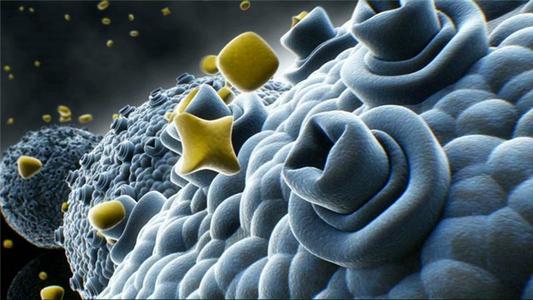
研究发现,若女性乳腺癌患者肿瘤灶附近存活有免疫细胞,则其存活五年或以上的几率或可比一般患者高10%左右。研究文章刊登于权威期刊Annals of Oncology中。

Immune cells found near tumours boost breast cancer survival
WOMEN with breast cancer are 10 per cent more likely to survive for five years or more if they have certain immune cells near their tumour, according to research published in Annals of Oncology today (Tuesday).
The researchers looked for an immune cell called a killer T cell which specialises in destroying rogue cells in the body, such as cancer cells.
The Cancer Research UK study* found that when these immune cells were present, survival improved for women with ER-negative and ER-positive HER2-postive breast cancer. However, survival didn't change for women with ER-positive HER2-negative breast cancer.
Study author, Dr Raza Ali, National Institute for Health Research clinical lecturer at the Cancer Research UK Cambridge Institute, University of Cambridge, said: "Cancer often finds ways to escape the immune system, but helping immune cells to recognise cancer as a threat - and attack it - provides a promising and powerful avenue for new treatments. We've shown that women who have killer T cells present at the site of their tumour are likely to live longer.
"This important insight could help doctors personalise a woman's treatment based on her immunological profile and also suggests that new treatments should harness the immune system to fight cancer."
Immune cells were counted and analysed from samples collected from 12,439 breast cancer patients from four different studies across England and Canada**.
The research shows that infiltration into the tumour by killer T cells flags up how certain patients should be treated. The finding also suggests that chemotherapy could be given alongside immunotherapy drugs. Chemotherapy treatment such as doxorubicin in particular may be enhanced when killer T cells are present.
Professor Carlos Caldas, senior group leader at the Cancer Research UK Cambridge Institute, University of Cambridge, said: "The more we learn about how precisely the immune system interacts with breast cancer the better we are able to fine tune the treatments we give to patients - and the sooner we can save more lives.
"This was the largest ever study of its type looking at data from over 12,000 patients. Crucial research such as this is only possible due to the collaboration available at the Cambridge Cancer Centre, a partnership between Cancer Research UK, the University of Cambridge and Addenbrooke's Hospital."
Professor Peter Johnson, Cancer Research UK's chief clinician, said: "This research highlights the great strides we are making in understanding the complex interplay between cancer and the body's immune system. These studies are key to informing how we are best able to treat patients in the clinic and to design better drugs that make the best use of the body's own defences."
